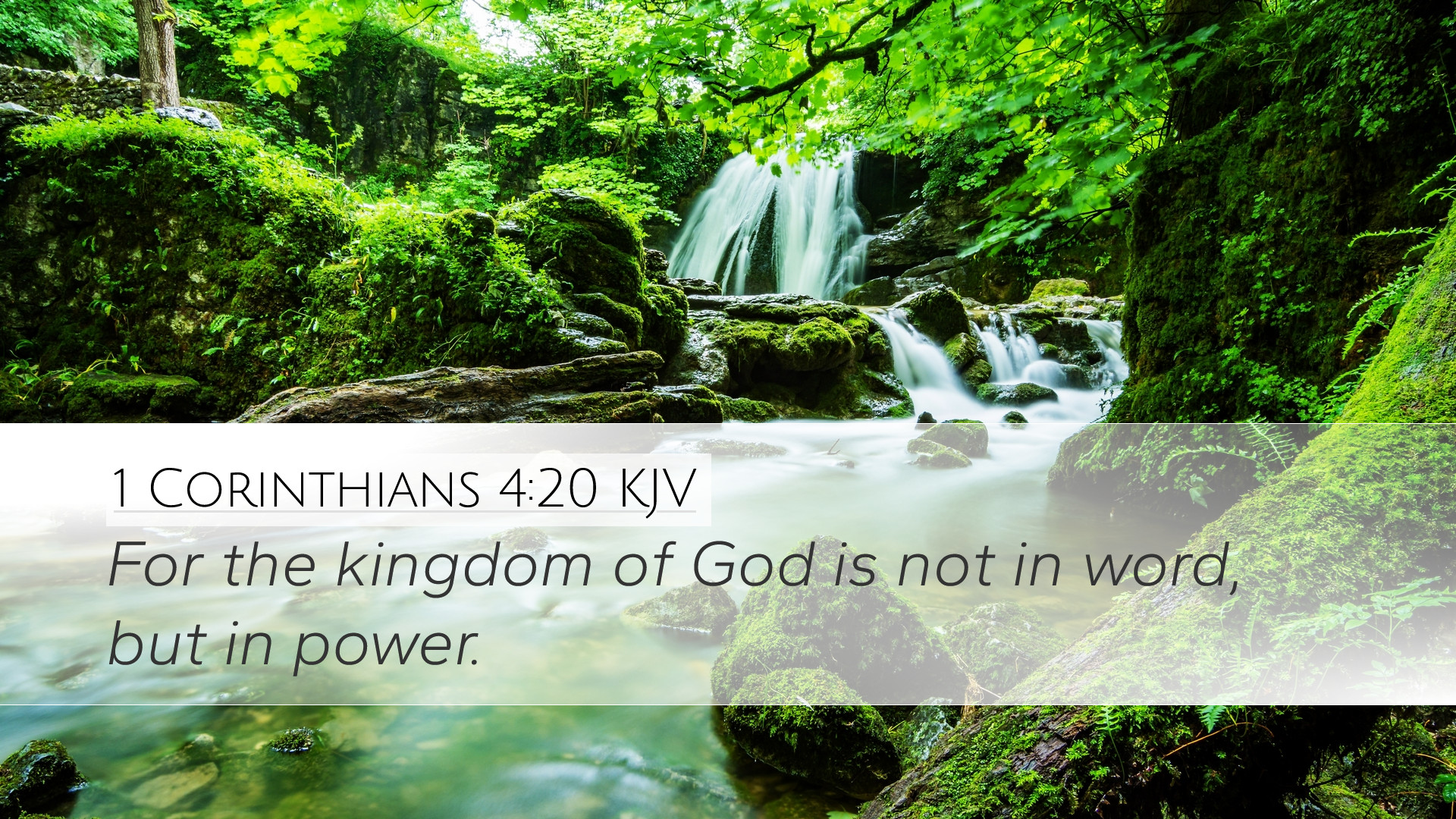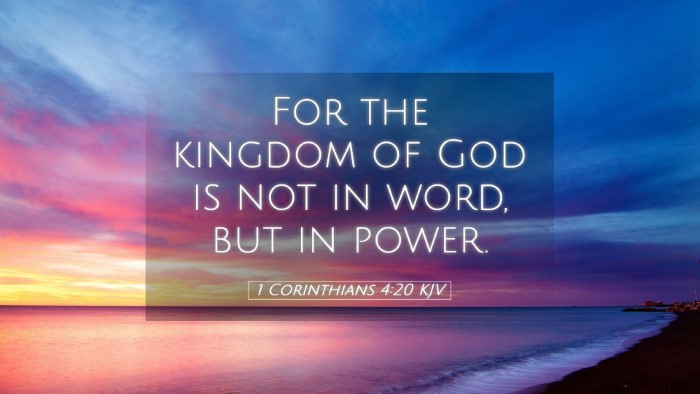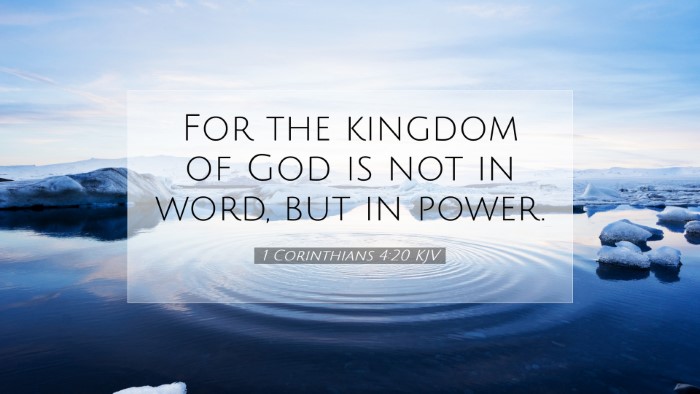Old Testament
Genesis Exodus Leviticus Numbers Deuteronomy Joshua Judges Ruth 1 Samuel 2 Samuel 1 Kings 2 Kings 1 Chronicles 2 Chronicles Ezra Nehemiah Esther Job Psalms Proverbs Ecclesiastes Song of Solomon Isaiah Jeremiah Lamentations Ezekiel Daniel Hosea Joel Amos Obadiah Jonah Micah Nahum Habakkuk Zephaniah Haggai Zechariah MalachiVerse
1 Corinthians 4:1 1 Corinthians 4:2 1 Corinthians 4:3 1 Corinthians 4:4 1 Corinthians 4:5 1 Corinthians 4:6 1 Corinthians 4:7 1 Corinthians 4:8 1 Corinthians 4:9 1 Corinthians 4:10 1 Corinthians 4:11 1 Corinthians 4:12 1 Corinthians 4:13 1 Corinthians 4:14 1 Corinthians 4:15 1 Corinthians 4:16 1 Corinthians 4:17 1 Corinthians 4:18 1 Corinthians 4:19 1 Corinthians 4:20 1 Corinthians 4:21

